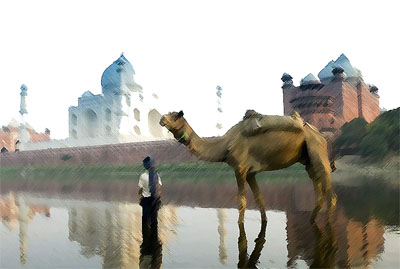About Us
About Us

Established in 2005 with a generous donation from the Uka and Nalini Solanki Foundation, the YCIS supports the impartial study of India’s cultures, peoples and history. The first center of its kind in California, it promotes the study of India through social sciences, humanities, arts, education and other academic disciplines. It provides interdisciplinary study and critical analysis of the Indian subcontinent and its peoples from ancient times to the present. The Center’s curriculum, programs and activities are designed to build bridges between the academic community at CSULB plus the large, diverse Indian American community in Southern California and beyond.
With more than a billion citizens, almost 16 percent of the world’s population, India is a reflection of millennia of interaction and exchange across a wide spectrum of cultures and civilizations. Critical contemporary intellectual, political and social issues, such as security, social equality, economic and political development, and the role of historical relationships, are being debated in India. The outcomes of these debates and the manner in which these issues will be addressed is of vital interest to the United States and world community. Center oversight is provided by Professor Arnold P. Kaminsky (Senior Coordinator, Public Policy) and Professor Tim Keirn (Coordinator, Academic Outreach, a Center Steering Committe, and a Community Advisor).
The Yadunandan Center for India Studies was formally inaugurated in 2005 with the support of a generous donation from the Uka and Nalini Solanki Foundation. The center is named after Nalini Solanki’s great-great grandfather, an early advocate of education in northern India. The endowment from the Solanki family also helped establish the Uka and Nalini Solanki Lecture Series, an annual event which brings a well-known scholar in the field of India studies to the CSULB campus. Mr. Uka Solanki, president and CEO of Big Saver Foods, Inc., is a strong supporter of educational and medical charity activities. He has been associated with charitable and community service activities in India, the United States, as well as other countries. The Solanki Foundation has helped provide medical attention to those in need and donated funds for earthquake victims. The foundation has also established a school for girls in the city of Junagadh in Gujarat, India.
Mr. Solanki’s business leadership as well as philanthropic efforts have earned him much recognition. A board member of the Mexican American Grocers Association (MAGA), he was awarded the Raul Macias Memorial Award in 1998. In addition, he is the recipient of Rotary International’s distinguished Paul Harris Award honoring his community leadership and involvement. The Uka and Nalini Solanki Foundation’s donation to the College of Liberal Arts at California State University, Long Beach is an endeavor to help bring greater recognition to India studies by establishing a regional center. Mr. Solanki is the founding president of the Indian Council for the Advancement of Education in India, as well as the founder, president, and patron donor of the Sardar Patel Award at UCLA.
The Yadunandan Center for India Studies at California State University, Long Beach (CSULB) is dedicated to the impartial study of India’s cultures, peoples and history. Formally inaugurated in 2005, the establishment of the center was made possible by a generous donation from the Uka and Nalini Solanki Foundation. The first of its kind in California, it seeks to:
- Provide a platform for the interdisciplinary study and critical analysis of the Indian subcontinent.
- Promote India studies by actively supporting scholars across a variety of academic disciplines, including the social sciences, humanities, arts and education, as well as through fellowships and scholarships.
- Expand student awareness of program and course opportunities in pursuit of the study of India and the Indian subcontinent on campus.
- Take a leadership role in establishing and hosting a Southern California network for the development of India awareness among universities and colleges.
- Establish collaborative networks with the large and diverse Asian Indian community and beyond through programs, including conferences and exhibitions, lectures and seminars, as well as India-related cultural and community activities.
- Conduct outreach for K-12 teachers and educators through curriculum development and workshops.

